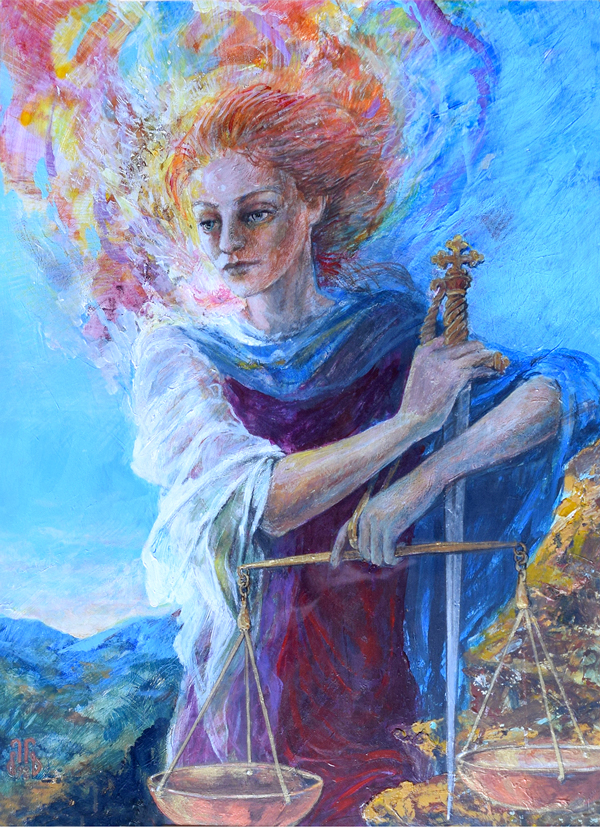Who is a Modern Gnostic?
I came across a website by women fed up with the patriarchal church and its centuries-long subjugation of the feminine. I liked their section exploring the importance of women in early Christianity and thought they might like to know about my novel Marriages of the Magdalene. So I made contact.
A message came back. ‘Sorry to be blunt when you have been so complimentary, but we couldn’t possibly have anything in common or continue to communicate. It appears to us that you are a Gnostic!’ (they had looked over my website).
There was no explanation. Mystified I was motivated to find possible reasons for the rebuff. After all, Gnosticism didn’t reject the feminine spirit or her human counterpart. Wisdom, Sophia in Greek was very much part of it, and Mary Magdalene was often cast as a guide to wisdom.
A look at Gnostic origins
Gnostic comes
from gnosis, the Greek word for knowledge, the kind of
knowledge that enables insight into spiritual things unknowable to the senses.
Widespread by the 2nd century CE, Gnosticism had some affinity with ancient mystery
cults and Platonic philosophy. As a branch of Christianity Gnosticism
co-existed with the church until about the 4th century,
although many church fathers condemned the beliefs as heretical.
What we knew about
Gnosticism came from those complaining churchmen until the discovery in 1945 of
a cache of gnostic Christian writings at Nag Hammadi in Egypt. These revealed
philosophical attempts to explain why earthly existence is filled with
suffering. The explanations took many forms. One radical version portrayed a
separation between the perfect realm of the divine and the flawed physical
world created by a lesser being called the Demiurge. This thinking led to
extremes of renunciation and denial of ‘things of this world’ including the
physical body. The Cathars in the Languedoc region of southern France still
thought that way in the 13th century, but so did mainstream
Christianity, although today it is a fringe belief.
But another gnostic idea of a divine spark hiding within the soul is
different. It continues to resonate widely. So, what would a modern Gnostic
think about that?
Searching for the ‘divine spark’ – faith and knowledge
In any area of
life, from a scientific problem to discovering your purpose, you begin with faith
that answers can be found. When you have faith, you trust, and this is the impetus
to begin your work, to form a relationship, to travel to an unexplored place.
Gnosticism
acknowledged the need for faith, and for spiritual guides, the greatest of whom
was Jesus Christ, who revealed the way for a human race generally ignorant of
the divine spark within. But for a Gnostic this spark could never be discovered
without the seeker’s personal commitment and the knowledge of the steps involved.
The opposing religious notion was dependence, on the favour of God, Christ,
divine Sophia, Mary or some other spiritual power set apart from humans. It’s
called ‘blind faith’.
Dig down today and
you find that many spiritually inclined and religious people continue to see a
heavenly ‘him’ or ‘her’ making the longed-for event happen. All you do is
believe and ask, as in ‘Ask and it will be given to you’ (Matthew 7:7). This
kind of faith ignores the significance of the rest of that quote: ‘… seek and
you will find; knock, and it will be opened unto you’.
Knowledge is never
perfect, there is always more to discover, but seeking knowledge and
understanding opens the mind and provides the opportunity to explore profound
ideas, and to grow in wisdom. The modern Gnostic recognises this. As with any
serious undertaking, the spiritual quest requires a persistent and exacting
personal effort.
I still didn’t know
for sure why that website’s editors disapproved. But striving to know one’s
spiritual self and finding the courage to express this self in the world – that
feels contemporary to me. If to be on this journey is to be a ‘Gnostic’, I
think it’s great to be among all of you who travel too.



Comments
Post a Comment